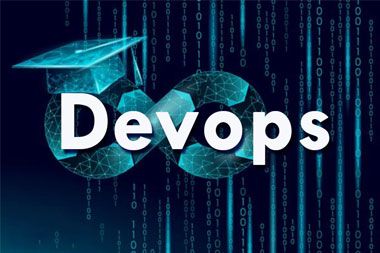Understanding the Basics of DevOps and Its Industry Relevance

DevOps Foundation certification
In the ever-evolving world of IT and software development, staying competitive and efficient is essential. One of the biggest transformations in this field has been the emergence of DevOps. This practice is not just a buzzword but a cultural and technical shift that reshapes how teams work together to build, test, and release software. Understanding the basics of DevOps from the ground up can help individuals and organizations adapt faster, reduce errors, and deliver value to customers more effectively.
Let’s break down the basics of DevOps and understand why it matters so much in today’s technology-driven world.
What is DevOps?
DevOps = Development + Operations
It is a combination of software development (Dev) and IT operations (Ops).
The goal is to shorten the system development life cycle while delivering features, fixes, and updates frequently in close alignment with business objectives.
More than Just Tools
DevOps is not only about tools but also about mindset and culture. Understanding the basics of DevOps means recognizing that collaboration and communication are as important as automation.
It encourages collaboration between traditionally siloed teams: development, operations, QA, and security.
Agile and DevOps
While Agile focuses on iterative development, DevOps focuses on continuous integration, delivery, and deployment.
DevOps often complements Agile practices by automating and streamlining deployment processes. Mastering the basics of DevOps helps teams integrate Agile efficiently.
Core Principles of DevOps
Collaboration and Communication
Breaking down silos between teams.
Encouraging shared responsibilities and goals.
Automation
Automating repetitive tasks like code integration, testing, and deployment.
Tools such as Jenkins, Git, and Ansible help with automation.
Continuous Integration (CI)
Developers integrate code into a shared repository frequently.
Each integration is verified by automated builds and tests.
Continuous Delivery (CD)
Ensures that code changes are automatically prepared for a release to production.
Frequent, reliable software releases with minimal manual intervention.
Monitoring and Feedback
Constantly monitoring application performance.
Quick feedback loops help fix issues proactively.
Security as Code
Incorporating security practices within the development process.
By understanding the basics of DevOps, teams can implement these principles more effectively and ensure smoother operations.
Key Benefits of DevOps
Faster Time to Market
Speeds up the delivery of new features and bug fixes.
Enables companies to respond faster to market changes.
Improved Collaboration
Promotes team ownership and accountability.
Enhances communication and transparency.
Better Quality Software
Early detection of bugs through automated testing.
Stable and consistent deployment environments.
Increased Efficiency
Automating workflows reduces manual errors.
Frees up time for more strategic tasks.
Greater Customer Satisfaction
Frequent updates based on customer feedback.
Learning the basics of DevOps ensures teams can fully leverage these benefits.
Popular DevOps Tools
Version Control: Git, GitHub, GitLab
CI/CD: Jenkins, CircleCI, Travis CI
Configuration Management: Puppet, Chef, Ansible
Containerization: Docker, Kubernetes
Monitoring: Nagios, Prometheus, Grafana
Security: SonarQube, Aqua Security, Snyk
Each of these tools plays a critical role in automating and streamlining DevOps practices. Mastering the basics of DevOps helps professionals choose and use these tools effectively practices.
DevOps in Different Industries
Technology Companies
Adopt DevOps to innovate faster and stay ahead of competitors.
Banking and Finance
Use DevOps to secure and deliver customer-focused digital services quickly.
Healthcare
Leverage DevOps for faster deployment of applications that meet regulatory standards.
E-commerce
Ensure high availability and fast feature releases during high-traffic seasons.
Telecommunications
Manage large-scale infrastructure and ensure reliable service delivery.
Career Opportunities in DevOps
Site Reliability Engineer (SRE)
Automation Architect
Release Manager
Cloud DevOps Specialist
DevOps professionals are in high demand across industries. Knowing the basics of DevOps can significantly boost your career in IT.
Getting Started with DevOps
Learn a Programming Language
Python, Shell scripting, or Ruby are good starting points.
Understand Linux/Unix
Most DevOps environments are Linux-based.
Get Familiar with Git
Learn version control basics.
Start Using CI/CD Tools
Try out Jenkins or GitHub Actions.
Understand Infrastructure as Code (IaC)
Tools like Terraform and Ansible help manage infrastructure programmatically.
Practice Containerization
Learn Docker basics and how to orchestrate with Kubernetes.
- Grasping the basics of DevOps at the start helps you build a strong foundation.
Final Thoughts
DevOps has become a critical aspect of modern software development. Its ability to bridge gaps between development and operations, automate processes, and deliver software reliably and quickly makes it indispensable. Whether you’re an aspiring IT professional or a business looking to improve software delivery, embracing DevOps can bring immense value.
Start small, keep learning, and gradually build your DevOps skills. Mastering the basics of DevOps ensures you can create faster, more secure, and reliable systems that drive real impact.